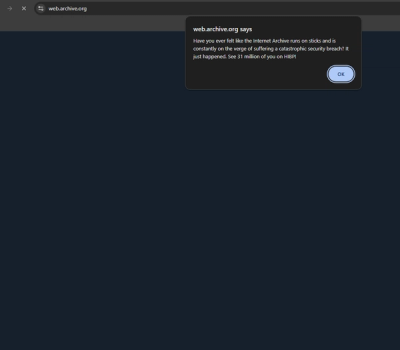
A porting of zio-optics to TypeScript

@fp-ts/optic is a library that makes it easy to modify parts of larger data structures based on a single representation of an optic as a combination of a getter and setter.
@fp-ts/optic features a unified representation of optics, deep @fp-ts/data integration, helpful error messages,
Features
- Unified Representation Of Optics. All optics compose the same way because they are all instances of the same data type (
Optic) - Integration. Built-in optics for
@fp-ts/data data structures, like List and Chunk
Optics
flowchart TD
Iso --> Lens
Iso --> Prism
Lens --> ReversedPrism
ReversedPrism --> Optional
Prism --> Optional
Optional --> Getter
Optional --> Setter
Getter --> Optic
Setter --> Optic
Summary
Let's say we have an employee and we need to upper case the first character of his company street name.
import * as O from "@fp-ts/data/Option";
interface Street {
num: number;
name: O.Option<string>;
}
interface Address {
city: string;
street: Street;
}
interface Company {
name: string;
address: Address;
}
interface Employee {
name: string;
company: Company;
}
const from: Employee = {
name: "john",
company: {
name: "awesome inc",
address: {
city: "london",
street: {
num: 23,
name: O.some("high street"),
},
},
},
};
const to: Employee = {
name: "john",
company: {
name: "awesome inc",
address: {
city: "london",
street: {
num: 23,
name: O.some("High street"),
},
},
},
};
Let's see what could we do with @fp-ts/optic
import * as Optic from "@fp-ts/optic";
import * as StringOptic from "@fp-ts/optic/data/String";
import * as String from "@fp-ts/data/String";
const _firstChar: Optic.Optional<Employee, string> = Optic.id<Employee>()
.at("company")
.at("address")
.at("street")
.at("name")
.some()
.compose(StringOptic.index(0));
const capitalizeName = Optic.modify(_firstChar)(String.toUpperCase);
expect(capitalizeName(from)).toEqual(to);
Understanding Optics
@fp-ts/optic is based on a single representation of an optic as a combination of a getter and a setter.
export interface Optic<
in GetWhole,
in SetWholeBefore,
in SetPiece,
out GetError,
out SetError,
out GetPiece,
out SetWholeAfter
> {
readonly getOptic: (
GetWhole: GetWhole
) => Either<readonly [GetError, SetWholeAfter], GetPiece>;
readonly setOptic: (
SetPiece: SetPiece
) => (
SetWholeBefore: SetWholeBefore
) => Either<readonly [SetError, SetWholeAfter], SetWholeAfter>;
}
The getter can take some larger structure of type GetWhole and get a part of it of type GetPiece. It can potentially fail with an error of type GetError because the part we are trying to get might not exist in the larger structure.
The setter has the ability, given some piece of type SetPiece and an original structure of type SetWholeBefore, to return a new structure of type SetWholeAfter. Setting can fail with an error of type SetError because the piece we are trying to set might not exist in the structure.
Lens
A Lens is an optic that accesses a field of a product type, such as a tuple or a struct.
The GetError type of a Lens is never because we can always get a field of a product type. The SetError type is also never because we can always set the field of a product type to a new value.
In this case the GetWhole, SetWholeBefore, and SetWholeAfter types are the same and represent the product type. The GetPiece and SetPiece types are also the same and represent the field.
Thus, we have:
export interface Lens<in out S, in out A>
extends Optic<S, S, A, never, never, A, S> {}
The simplified signature is:
export interface Lens<in out S, in out A> {
readonly getOptic: (s: S) => Either<never, A>;
readonly setOptic: (a: A) => (s: S) => Either<never, S>;
}
This conforms exactly to our description above. A lens is an optic where we can always get part of the larger structure and given an original structure we can always set a new value in that structure.
Prism
A Prism is an optic that accesses a case of a sum type, such as the Left or Right cases of an Either.
Getting part of a larger data structure with a prism can fail because the case we are trying to access might not exist. For example, we might be trying to access the right side of an Either but the either is actually a Left.
We use the data type Error to model the different ways that getting or setting with an optic can fail. So the GetError type of a prism will be Error.
The SetError type of a prism will be never because given one of the cases of a product type we can always return a new value of the product type since each case of the product type is an instance of the product type.
A prism also differs from a lens in that we do not need any original structure to set. A product type consists of nothing but its cases so if we have a new value of the case we want to set we can just use that value and don't need the original structure.
We represent this by using unknown for the SetWholeBefore type, indicating that we do not need any original structure to set a new value.
Thus, the definition of a prism is:
export interface Prism<in out S, in out A>
extends Optic<S, unknown, A, Error, never, A, S> {}
And the simplified signature is:
export interface Prism<in out S, in out A> {
readonly getOptic: (s: S) => Either<Error, A>;
readonly setOptic: (a: A) => (s: unknown) => Either<never, S>;
}
Again this conforms exactly to our description. A prism is an optic where we might not be able to get a value but can always set a value and in fact do not require any original structure to set.
Other
@fp-ts/optic supports a wide variety of other optics:
- Optional. An
Optional is an optic that accesses part of a larger structure where the part being accessed may not exist and the structure contains more than just that part. Both the GetError and SetError types are Error because the part may not exist in the structure and setting does require the original structure since it consists of more than just this one part. - Iso. An
Iso is an optic that accesses a part of a structure where the structure consists of nothing but the part. Both the GetError and SetError types are never and the SetWholeBefore type is unknown. - Getter. A
Getter is an optic that only allows getting a value. The SetWholeBefore and SetPiece types are never because it is impossible to ever set. - Setter. A
Setter is an optic that only allows setting a value. The GetWhole type is never because it is impossible to ever get.
There are also more polymorphic versions of each optic that allow the types of the data structure and part before and after to differ. For example, a PolyPrism could allow us to access the right case of an Either<A, B> and set a C value to return an Either<A, C>.
Cheatsheet
Optic constructors
| Optic | Name | Given | To |
|---|
| Iso | iso | S => A, A => S | Iso<S, A> |
| id | | Iso<S, S> |
| Lens | lens | S => A, A => S => S | Lens<S, A> |
| at | Key | Iso<S, S[Key]> |
| Prism | prism | S => Either<Error, A>, A => S | Prism<S, A> |
| polyPrism | S => Either<[Error, T], A>, B => T | PolyPrism<S, T, A, B> |
| cons | | Prism<A[], [A, A[]]> |
| nonNullable | | Prism<S, NonNullable<S>> |
| filter | Predicate<S> | Prism<S, S> |
| filter | Refinement<S, A> | Prism<S, A> |
| Optional | optional | S => Either<Error, A>, A => S => Either<Error, S> | Optional<S, A> |
| polyOptional | S => Either<[Error, T], A>, B => S => Either<[Error, T], T> | PolyOptional<S, T, A, B> |
| index | number | Optional<A[], A> |
| head | | Optional<A[], A> |
| tail | | Optional<A[], A[]> |
| findFirst | Predicate<A> | Optional<A[], A> |
| findFirst | Refinement<A, B> | Optional<A[], B> |
Getter / Setter APIs
| Name | Given | To |
|---|
| get | Lens<S, A>, S | A |
| decode | Prism<S, A>, S | Either<Error, A> |
| encode | Prism<S, A>, A | S |
| getOrModify | PolyOptional<S, T, A, B>, S | Either<T, A> |
| modify | Optional<S, A>, A => A | S => S |
| replace | Setter<S, A>, A, S | S |
| replaceOption | Setter<S, A>, A, S | Option<S> |
| getOption | Getter<S, A>, S | Option<A> |
Installation
To install the alpha version:
npm install @fp-ts/optic
Documentation
License
The MIT License (MIT)





